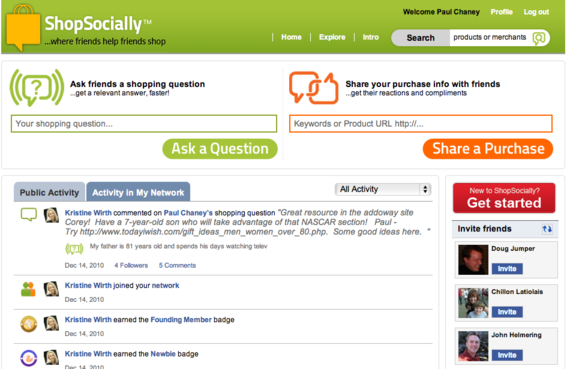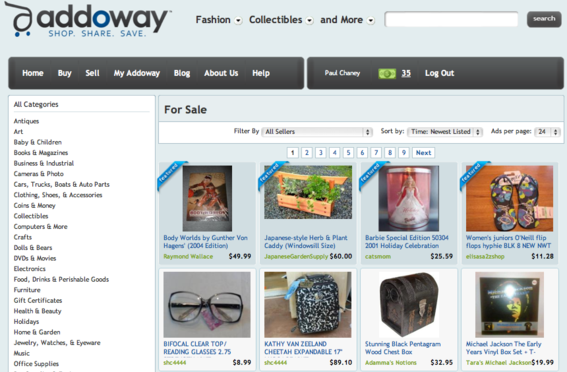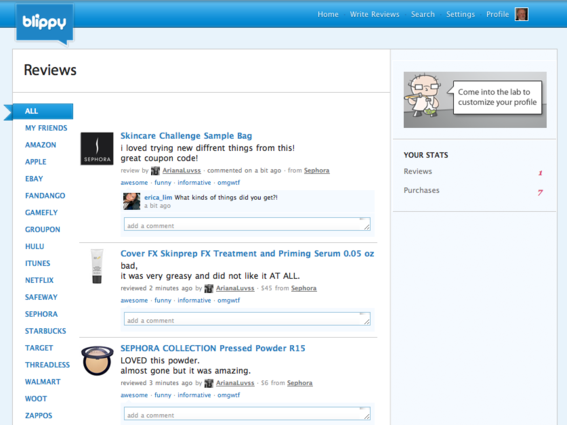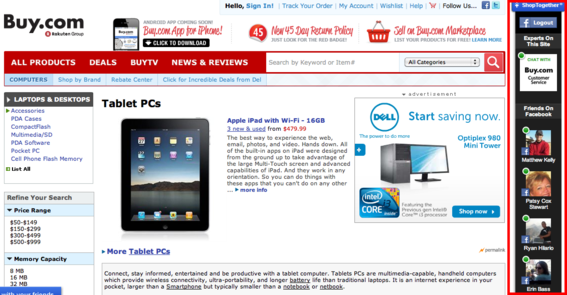I received an email recently from a friend asking me what type of vacuum cleaner he should purchase. I noticed the email did not come from him directly, however, but from ShopSocially, a social shopping website that is part of a new class of sites in which reliance on friends is at the core.
ShopSocially
ShopSocially is at the beginning of this new genre. Front and center on the home page, users are given the opportunity to either ask friends a shopping question or share purchase information with friends.

ShopSocial.ly is a shopping recommendation engine.
In fact, that is the site’s sole purpose. ShopSocially is not an ecommerce site. It bills itself as a “shopping recommendation engine” built around two concepts: that people tend to consult friends regarding purchase decisions, and they like to share purchases they’ve made with friends.
The site borrows a tactic from Foursquare — the networking and locating service — and awards virtual badges as a way to entice users to share.

Users of ShopSocial.ly earn badges for sharing purchases.
Addoway
Addoway is another member of the social shopping family.

Addoway is an online marketplace for buying and selling.
When visitors come to the site, they are encouraged to:
- Find great deals from sellers you can trust;
- Share what your friends are buying and selling;
- Share deals you find with friends and save more.
Addoway is similar to eBay in that it is a marketplace where anyone can buy and sell products. Unlike eBay, where sellers’ identities are hidden behind usernames and access to them is primarily funneled through the site itself, Addoway shows an avatar of the seller, along with links to social networks where he or she may have a profile. It puts the purchaser and the seller in direct communication.
Other Social Shopping Sites
Blippy
Blippy is a social sharing site where users post updates about purchases of goods and services. Blippy is comparable to Twitter due to its Twitter-like interface and the ability to follow others. Users can also synchronize, to Blippy, existing ecommerce accounts such as eBay, Etsy, iTunes, Gilt and Groupon.

Blippy is a social shopping version of Twitter.
Wanelo
Wanelo, which is combination of the words “want,” “need,” and “love,” is a site for bookmarking and sharing products with friends. Shoppers can follow one another and see what’s popular based on what friends are sharing.

Wanelo: “WAnt,” “NEed,” “LOve.”
Buy.com
Buy.com has jumped into the social shopping foray with its recent acquisition of DecisionStep, the developer of ShopTogether, a social shopping platform that allows users to shop together in real time, make recommendations of products, and chat via email, instant messaging, Facebook, or Twitter.

Buy.com acquired DecisionStep, a social shopping platform.
Advantages to Social Shopping
Benefits to Retailers
Social shopping offers benefits to retailers in that these sites not only harness the power of user reviews and recommendations of products, but also share information about users with retailers. Recommendations from friends add legitimacy to the value of a brand or product because they come from a trusted source, which can result in more sales.
Benefits to Shoppers
The greatest benefits to social shopping fall on the side of the shoppers. It gives them the ability to build and share a wish list, discover products they did not know existed, exchange shopping tips with others, make more informed buying decisions, and even show off their sense of style.
Social Shopping on Merchant Websites
The use of social shopping is not relegated to third-party sites. Thanks to ratings and review services — such as Power Reviews and BazaarVoice, or social sign-on capabilities by Facebook — merchants can incorporate social shopping elements into their own ecommerce sites.
Conclusion
Social shopping provides a way for buyers and sellers to interact in a more transparent manner. Newer versions of social shopping sites rely on recommendations of friends to increase sales.





